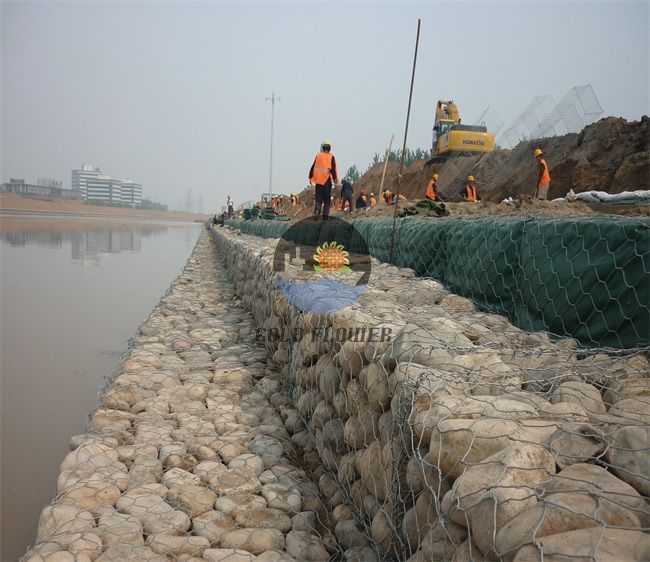Aug . 07, 2024 04:05 Back to list
Exploring the Applications and Benefits of OEM Technologies in Wire Mesh Production and Design
The Role of OEM in Wire Mesh Manufacturing
In the industrial and manufacturing sectors, the term Original Equipment Manufacturer (OEM) plays a critical role, especially in the context of wire mesh products. Wire mesh, known for its versatile applications across numerous industries, can benefit significantly from the OEM model to enhance quality, efficiency, and customization.
Understanding Wire Mesh
Wire mesh consists of metallic or non-metallic wires woven together to form a network. Its applications range from construction (such as concrete reinforcement) to filtration systems, agriculture, and even security solutions. The versatility of wire mesh makes it essential in various industries, indicating the need for a reliable and efficient supply chain.
The Importance of OEM in Production
An OEM in the wire mesh industry typically specializes in designing and manufacturing products that other companies sell under their brand names. This allows businesses to offer a wide range of wire mesh solutions without bearing the burden of high production costs and inventory management. By partnering with OEMs, companies can focus on their core competencies, such as marketing and customer service, while leaving the intricacies of manufacturing to specialized providers.
1. Quality Assurance
One of the primary advantages of working with an OEM in wire mesh production is the assurance of quality. Established OEMs have stringent quality control processes in place, ensuring that the wire mesh meets specific standards and regulations. This not only guarantees the durability and reliability of the products but also enhances the brand's reputation. Clients can have confidence that the wire mesh they provide will perform as expected in various applications.
oem 1 in wire mesh

2. Customization and Innovation
Every application has unique requirements, and OEMs are adept at customizing their offerings to meet specific client needs. Whether it involves altering the wire gauge, mesh size, or material type, OEMs can develop tailored solutions that address the precise demands of different industries. Furthermore, innovative techniques and technologies continually evolve in wire mesh manufacturing, and OEM partners often have access to the latest advancements. This enables clients to benefit from cutting-edge products such as corrosion-resistant coatings or high-strength woven meshes, enhancing overall performance.
3. Reduced Costs and Increased Efficiency
Partnering with an OEM can lead to substantial cost savings. Manufacturers often face high initial investments in machinery and labor. By collaborating with an OEM, companies can mitigate these expenses and benefit from economies of scale. Due to their established production facilities and expertise, OEMs can often produce wire mesh at lower costs, passing these savings onto their clients. Additionally, the efficiency gained from outsourcing production allows companies to respond to market demands more swiftly, improving overall competitiveness.
4. Focus on Core Competencies
By outsourcing wire mesh production to an OEM, companies can redirect their focus to other critical business areas. This strategy enables them to allocate resources towards research and development, marketing, and customer engagement, ultimately driving growth. The flexibility that comes with using an OEM allows businesses to scale their operations effectively without overextending their capabilities.
Conclusion
The integration of OEM practices in the wire mesh industry is a strategic decision that offers numerous benefits. From enhanced quality assurance and customization to cost savings and increased operational efficiency, collaborating with an OEM can significantly propel a business forward. As industries continue to evolve, the demand for high-quality, tailored wire mesh solutions will only grow, making the role of OEMs indispensable in meeting these needs. In this competitive landscape, businesses that leverage the advantages of OEM partnerships are likely to succeed and stand out in the marketplace.
share
-
CE Certified 250 Micron SS Mesh: Precision & Durability
NewsAug.15,2025
-
CE Certified 250 Micron Stainless Steel Mesh - Durable & Precise
NewsAug.14,2025
-
Precision CE Certified 250 Micron Stainless Steel Mesh
NewsAug.13,2025
-
CE Certified Metal Fine Mesh & Screen Fabric | Top Quality
NewsAug.12,2025
-
Premium CE Certified 250 Micron Stainless Steel Mesh
NewsAug.11,2025
-
CE Certified Stainless Steel Wire Mesh for Screen Printing
NewsAug.10,2025

